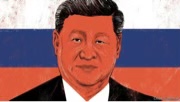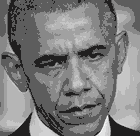- mawarannahr
- May 21, 2019
-

|
Wait did Wagner actually rebrand as the Africa Corps lmao
guess so
Russia's Africa Corps Takes Over From the Wagner Group

foreignpolicy.com posted:
On Jan. 24, Russia’s Africa Corps published the first images of a deployment to Burkina Faso on its Telegram channel. “A Russian contingent of 100 people will ensure the safety of the country’s leader, Ibrahim Traoré, and the Burkinabe people from terrorist attacks,” read a statement posted with the images. “In the near future, units will be replenished with another 200 military personnel from Russia.”
The deployment to Burkina Faso has fueled intense speculation on the restructuring of the Russian private military company Wagner Group’s operations in Africa since the death of its founders, Yevgeny Prigozhin and Dmitry Utkin, in a plane crash in August 2023. Much of the confusion is grounded not in secrecy, but in the fact that the end goals are still under debate. Nonetheless, from our conversations and interviews with insiders working on the project, we have identified several emerging trends.
Africa Corps is the semiofficial name for a paramilitary structure created by the Russian Ministry of Defense and, to some extent, by Prigozhin. While news of Africa Corps’ deployment to Burkina Faso has only just become public, it has been in the process of subsuming Wagner operations in Mali, Libya, and to a lesser degree in the Central African Republic (CAR) for some months now.
The nature of the restructuring shows that the center of gravity for Russian operations in Africa is shifting from the CAR to the Sahel. The change from Wagner to Africa Corps also marks a new phase in Russia’s export of security to Africa. Africa Corps differs from Wagner primarily in its official government status. The informal and private aspects of Prigozhin’s company have been largely removed, leaving a core expeditionary force intact. With this shift, Russia’s interventions on the continent are emerging out of the shadows of private initiative and into the limelight of official state project.
---
Prigozhin was, to put it mildly, a divisive and controversial figure in Russia. But while assessments of his operations vary widely, most would agree that it was only through his constant lobbying that the Wagner Group’s Africa branch, from 2017 to 2022, morphed from a small group of military instructors in Sudan to a serious military force across the continent.
The success of Prigozhin and his team in Africa, however, would have been impossible without funding from the Russian budget and administrative resources. In other words, while Prigozhin deserved much credit for the momentum behind various Russian interventions in Africa, the Wagner Group never worked alone. The role and relative influence of Prigozhin’s structures varied by country and depended on each theater’s importance to Russia’s other security institutions. For example, relevant insiders note Wagner’s intervention in Mali saw the deployment of more staff and personnel of the Ministry of Defense than Wagner’s intervention in CAR.
In Russia’s political economy, regime implementors such as Prigozhin have the freedom to pursue patriotic projects that further Russia’s national interest. (Where Prigozhin particularly excelled compared to his peers was in his ability to craft and sell to the Kremlin a narrative of what those “national interests” were.) It is understood that if the private initiative fails, it is a commercial failure. If the project succeeds, it stands to become a government project.
Prigozhin and his team leveraged this ambiguity. The Wagner Group could position itself to African clients as a representative of the Russian state, to the Russian state as an agent of influence in Africa, and to local power brokers as a private company ready to do business.
Prigozhin’s team was lucky, too. The arrival of Wagner military instructors, affiliated political experts, and geologists in Sudan in 2017—the group’s first foray into Africa—coincided with the decadeslong degradation of African militaries. Specifically in Africa’s Francophone countries, many national armies had become auxiliary forces to French, or more generally Western, interventions. For myriad reasons far from solely being the fault of the West, Western military-humanitarian interventions, even those backed by United Nations peacekeeping missions, failed to stem violence.
It was in the Central African Republic, from late 2017 to 2023, where Wagner’s model showed its greatest viability. In 2019, Wagner played the key role in brokering a peace deal between the CAR government and armed groups, though it could not hold in the run-up to 2020 presidential elections. In the nation’s 2021-22 counteroffensive against rebellion, roughly 2,000 Wagner contractors returned most major towns to government control.
This gave Prigozhin the opportunity and freedom to pursue a wide range of economic projects. And it was also in the CAR that Wagner developed a product for exporting so-called military solutions to other African nations, such as Mali in 2021.
The context in Mali, and in the Sahel more generally, however, was fundamentally different from the Central African Republic, both in the scale of the conflict and in the characteristics of the anti-government armed groups party to it. Nonetheless, Prigozhin’s Wagner Group had proven the viability of the model to the Russian state, which made the transition from private initiative to a project under government jurisdiction only a matter of time.
Prigozhin’s death accelerated the process. Over the past several months, the African branch of Prigozhin’s Wagner Group—the military unit, experts, political strategists, and others—have begun the transition to Africa Corps, under the leadership of Russia’s deputy defense minister, Col. Gen. Yunus-bek Yevkurov.
And like Wagner Group before it, the nature and mission of Africa Corps still depends on local context.
Africa Corps’ first operations were in Mali, where the Malian military, backed by Russia, seized the strategically important town of Kidal from separatist Tuareg armed groups in November 2023. Russian planners, insiders point out, had recognized the importance of returning Kidal to government control since 2021, noting that it was an important wedge issue between the French-led Operation Barkhane and Bamako. Thus far, even Malian military officers have expressed to the authors their surprise at the operation’s success.
The Africa Corps force operating in Mali is neither a fundamentally new structure nor a direct rebranding of the Wagner Group. Legacy staff have a choice: They can quit or continue their work for a government agency. Wagner’s military personnel can wear their old chevrons and insignia, and there’s an allowance for the preservation of certain traditions.
In Libya, the handover of operations to Africa Corps follows the model in Mali. There is a rebranding and re-signing of contracts with the Russian Ministry of Defense as well as a partial replacement of the management team. But Libya also represents one of Moscow’s greatest challenges. Close relations and military-technical cooperation with Field Marshal Khalifa Haftar (the leader of the Libyan National Army) have resumed, but Moscow no longer considers Haftar the future leader of Libya.
Haftar remains a serious regional power broker, however, with whom Moscow must continue to work on several issues, not least on preventing the potential flow of arms and fighters to Tuareg separatists from Libya. Haftar could also prove a useful intermediary with Chadian transitional leader Mahamat Idriss Déby. After previously hiring Chadian rebels, Haftar clashed with them in southern Libya.
Complicating matters is the fact that cooperation with Haftar remains at cross-purposes with efforts to maintain relations with the Libyan government in Tripoli. These relations are important to Russia’s energy companies in the country.
Success in Kidal has led to Africa Corps’ invitation into Burkina Faso. Its arrival is the culmination of diplomatic focus on bilateral relations and support for the Alliance of Sahelian States, which comprises Mali, Burkina Faso, and Niger. Moscow jumped at the chance to support and give a platform to such an initiative.
The case of Burkina Faso shows that African countries are never a vacuum that blindly sucks in Wagner, Africa Corps, or any other version of Russian intervention. The Burkinabe government, led by Capt. Ibrahim Traoré, had long eschewed Wagner’s services, seeking to shore up its forces through militia recruitment. In conversations with Burkinabe officers, it was clear that the desire to avoid the Wagner option stemmed from Burkina Faso’s long-standing tradition of political sovereignty, and a certain wariness from observing Wagner’s penetration of the CAR’s economy.
There was a sense among Burkinabe officers, however, that the Russian Ministry of Defense had less of a commercial focus than Prigozhin, which ultimately provided an opening to Africa Corps.
Meanwhile, unlike in Mali, Libya, or Burkina Faso, former Wagner contractors in the CAR have not signed a new contract with the Russian Ministry of Defense. This does not mean that operations haven’t been handed over to the ministry; rather, insiders state that the process is ad hoc, without significant guidance. Russian forces, a local source notes, continue to carry out operations from bases in major towns in CAR’s countryside.
The half-handover of Wagner operations in CAR reflects Russia’s shifting priorities.
While CAR was a serious project for Prigozhin and Wagner at an individual and organizational level, the country is not significant to France’s, America’s, or Russia’s Africa policy. As Wagner’s operations are subsumed into those of Africa Corps, the focus of the Russian Ministry of Defense has moved to the implementation of far more prestigious projects in the Sahel.
Perhaps sensing this fact, CAR President Faustin-Archange Touadéra and his administration have worked to revive declining interest in their country. Late last year, representatives from the U.S. private military company Bancroft visited CAR, fueling speculation of a potential intervention. This January, the Russian Embassy in Bangui confirmed that negotiations have taken place about building a Russian military base in the country.
The success of Russian initiatives has been grounded in an effective narrative: that Moscow is the only partner willing to fight separatism and terrorism on a large scale in Africa. The focus on territorial integrity—deeply intertwined with sovereignty—is particularly important.
---
The past decades have seen significant societal upheaval and political change in the countries that Moscow has either courted or partnered with. African leaders—democratically elected or not—both craft and are prisoner to political narratives such as the pro-sovereignty movement, or anti-French sentiment, in the Sahel and central Africa. At the same time, Africa has attracted more interest from great and middle powers alike. Besides China and Russia, Turkey, the United Arab Emirates, Iran, and others are investing.
There are plenty of issues between each of these countries. But their commercial interests tend to trump geopolitics, at least in Africa. The Turkish Bayraktar drones that kept Wagner out of Tripoli in 2020, for example, now support the Malian military and its Russian backers.
Africa, long considered a sleepy backwater for many diplomats, is where regional alliances and geopolitical partners once again change at breakneck speed.
On Jan. 24, for example, Déby visited Moscow and met with Russian President Vladimir Putin. The Chadian delegation also held meetings with Yevkurov and another deputy defense minister, Alexander Fomin, and Déby visited Chadian cadets in Russia’s military academies.
Chad has long been considered the bulwark of French influence in Africa. But rising anti-French sentiment in the region and lobbying from the United Arab Emirates are changing that. Déby stated after his visit to Moscow that “many things will change.”
In response to these trends, the United States has revamped its focus on Africa, with Secretary of State Antony Blinken making his fourth major visit to the continent this past week. U.S. officials have taken pains to point out that renewed interest is not a product of efforts to counter China or Russia, though they frequently comment or are forced to comment on those geopolitical rivals. And whether fair or not, there is a sense that the West has been long on rhetoric and exclusive partnerships but short on action.
Talk is even cheaper now that African governments have alternative partners for security and investment. Moscow has no grand strategy in this environment. And of course, Africa Corps, as a more formal structure, will require a certain degree of stultifying bureaucracy and approval mechanisms that the Wagner Group lacked.
But as its quick deployment to Burkina Faso shows, Africa Corps and affiliated structures are pulling a page from Prigozhin’s book: Taking action, even if it means making a mistake, is better than taking no action at all.
|























